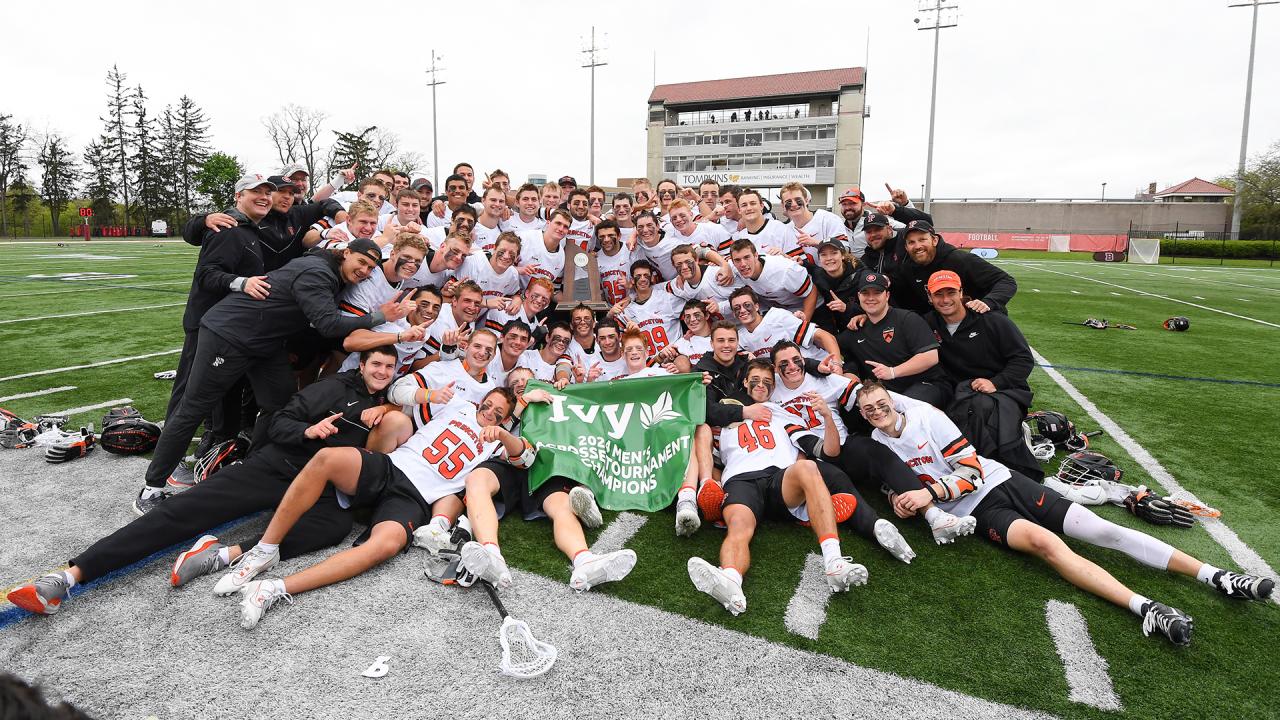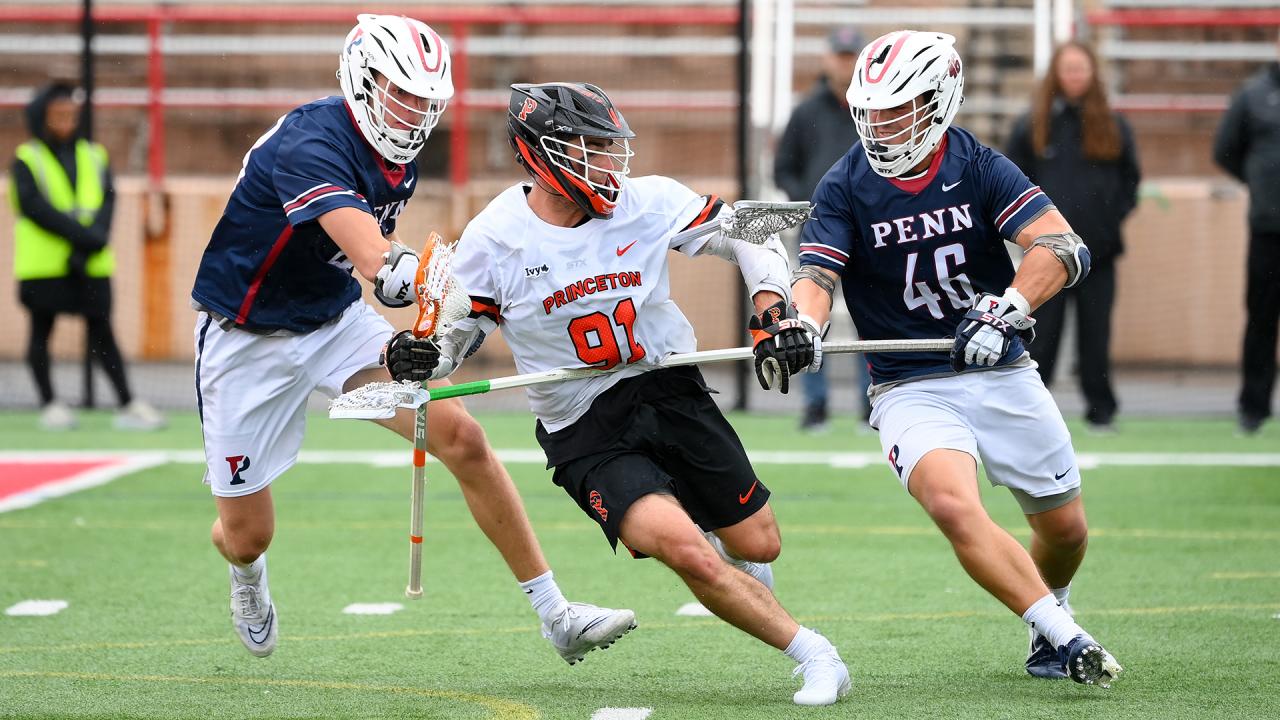

© 2025 USA Lacrosse. All Rights Reserved.

At some point, a youth movement simply becomes a movement.
And for the second straight year, Princeton is moving on to the NCAA tournament as the Ivy League champion.
The second-seeded Tigers dominated fourth-seeded Penn 18-11 in the conference championship game Sunday in Ithaca, N.Y., securing their spot in the 16-team bracket to be unveiled later in the night on ESPNU.
The Quakers hold out some hope for an at-large selection on the strength of a win over Duke and five top-20 RPI victories overall, but Michigan’s ascent to its second straight Big Ten title as the fourth seed Saturday night likely made the Ivy a one-bid league.
Coulter Mackesy had three goals and four assists for Princeton in Sunday’s final. The junior attackman was centerpiece of what coach Matt Madalon dubbed the “Moneyball offense” in a halftime interview with ESPNU. The Tigers beat the Quakers with rapid ball movement both around the perimeter and inside-out. Freshman attackmen Nate Kabiri and Colin Burns tied Mackesy with a team-high four assists and three goals, respectively. Princeton also got 11 goals from its midfield.
Penn had some offensive success as well, shooting a respectable 35 percent and attacking frequently from the top of the box. Ben Smith (four goals) and Cam Rubin (three goals) were particularly good at getting downhill.
It wasn’t enough to match the Tigers, who held the advantage in shots (57-31), ground balls (41-28), faceoffs (18-15) and caused turnovers (12-6). Quakers goalie Emmet Carroll made 20 saves in the loss.
Princeton led from start to finish. Every time Penn got within striking distance, the Tigers countered. They scored twice in the last 13 seconds of the third quarter to open a four-goal lead. Mackesy dodged from the right alley, danced inside and snuck a low-angle shot inside the near pipe with two seconds left in the quarter to put Princeton ahead 15-11.
The Tigers added three more goals while blanking Penn in the fourth quarter. A costly two-minute, non-releasable crosscheck penalty on Griffin Scane effectively eliminated the chance of a Quaker comeback. It was Penn’s fourth penalty of the game. Princeton, which went 2-for-4 man up, did not have any penalties.

Mackesy delivered the decisive blow, fending off multiple hard body checks, keeping his balance and diving from behind the goal to score on an empty net to make it 17-11 with 5:05 left.
Burns put an exclamation point on the win less than three minutes later, finishing a feed from Kabiri.
Princeton’s freshman class has combined for 70 goals this season. Only North Carolina (73) has more freshman goals in NCAA Division I lacrosse. Whereas the Tar Heels are done for the year, however, the Tigers have advanced to the NCAA tournament for the third straight season.
Matt DaSilva is the editor in chief of USA Lacrosse Magazine. He played LSM at Sachem (N.Y.) and for the club team at Delaware. Somewhere on the dark web resides a GIF of him getting beat for the game-winning goal in the 2002 NCLL final.






